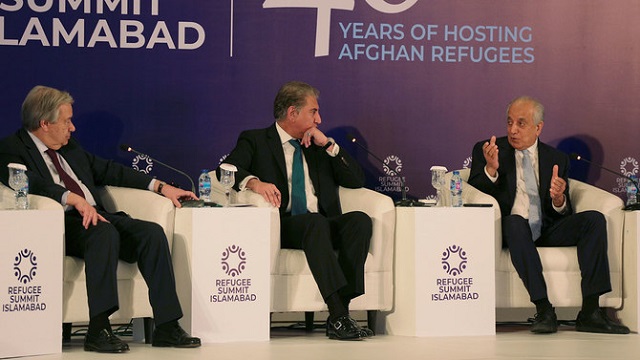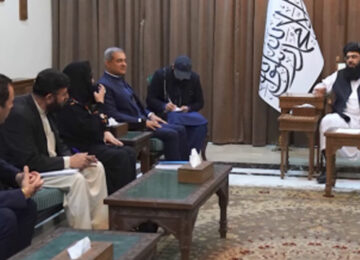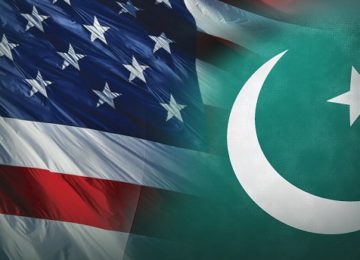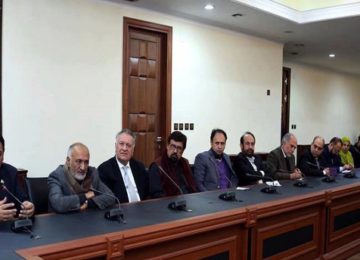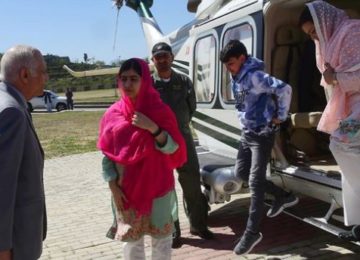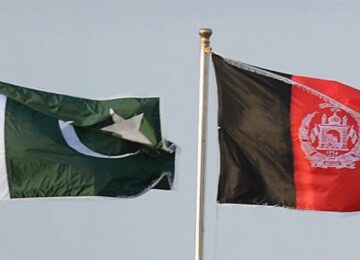March 15, 2021
Ahead of the March 18 Moscow conference involving key stakeholders, Pakistan at multiple levels reiterated its responsibility as a next door neighbor and a UN member to peace in Afghanistan. But – based on the past and present experiences – it also seems to have drawn some red lines.- gleaned from conversations with civilian and military officials.
Firstly, Pakistan is committed to the facilitation of a political settlement in Afghanistan.
Secondly, it is essential to uphold the sanctity of the Doha Agreement and stick to an inclusive, cconsensus approach – even if a revision of timelines such as US troops withdrawal (as agreed at Doha) becomes unavoidable. Pakistan, nevertheless remains committed to the goal of a “responsible” withdrawal under the Doha agreement – which is as much sacrosanct to Pakistan as to the US and other key stakeholders.
Thirdly, the red lines: firstly, no drones or kinetic action on or from the Pakistani soil any more. Secondly, Pakistan will not accept any undue pampering of India in Afghanistan. This is a case sensitive and Islamabad expects foreign friends to be empathetic to this sensitivity.
Fourth, Pakistan must be taken into confidence on decisions. We were never part of the Doha negotiations but still did whatever we could.
Fifth, Pakistan’s key focus currently is economic security, which is tied to peace in Afghanistan. Also, Pakistan is most probably the only country – because of its geographical proximity – which can help Afghanistan get back on its feet economically by extending its connectivity and creating co-investment opportunities between Af, Pak, US, China in Afghanistan.
These messages were conveyed during recent top level interactions, officials say. One of them was “an hourlong” phone call between Antony Blinken, the US secretary of state and Pakistan’s army chief General Qamar Bajwa, according to the Pakistani ARY channel.The other occasion was Zalmay Khalilzad’s meetings with Pakistani security officials in Islamabad. The third instance was General Bajwa’s Bahrain trip, where he met with key Afghan officials, including his counterpart and Hamdullah Mohib, the Afghan National Security Advisor (NSA). Noteworthy was also the presence of General Sir Nicholas Patrick Carter – Chief of Defence Staff UK Army, and Dr. Christian Turner – British High Commissioner to Pakistan, in the meeting.
This diplomatic intervention via Khalilzad also stems from the fact that the US seems psychologically done with Afghanistan after concluding that military victory is not possible. It wants a quicker, though considered exit from Afghanistan, yet not everyone necessarily shares this view, however.
By indulging in direct contacts with Islamabad Biden administration has also defied advice from conventional lobbyists and most of the DC think tank community; majority of them have urging Biden to delay pullout from Afghanistan by several months, a possibility President Ashraf Ghani had also put his bets on. But the vibes out of the White House and the State Department point to the contrary. They want to check out of Afghanistan for multiple domestic socio-economic reasons. This is not a view all agree on, though.
All this essentially betrays a sense of urgency within the Biden Administration, which has informally launched the new phase of diplomacy that will take Afghan stakeholders first to Moscow this week and then to Istanbul in April. The pandemic-induced conditions seem to have caused considerable anxiety and a sense of rush in Washington, prompting it work on a peace plan via Istanbul that should first culminate in an interim government in Kabul.
This is a goal where both Pakistan and the US are pretty much aligned – as much as Moscow, Turkey and Beijing. All are keen to urge Taliban to reduce violence in order to create conducive conditions for talks. But the Taliban, for their part, remain reticent largely because all of their prisoners have not been released. Nor have they been taken off the UN terror list.
The challenge right now for all of them is how to navigate these maximalist positions and make all Afghan stakeholders meet up in the middle in the larger interest of their people. Pressure and perusal in Kabul and Doha respectively may have worked – as of now. But larger challenges flowing from geopolitical conflicting still lie ahead. Beside deft diplomacy selfless perusal of peace by Afghan stakeholders will be the key to an inclusive way forward.
Also, US officials should take into account new ground realities of the region; it doesn’t want to be kicked around despite its all out efforts for peace in Afghanistan and expects a fair recognition of its role in the process.
Bottom-line: The Americans cannot really hope to use Pakistani shoulders to win Afghanistan and walk away with the trophy alone, without sharing any credit to the shoulder. Not Any more!
Courtesy: Matrix



